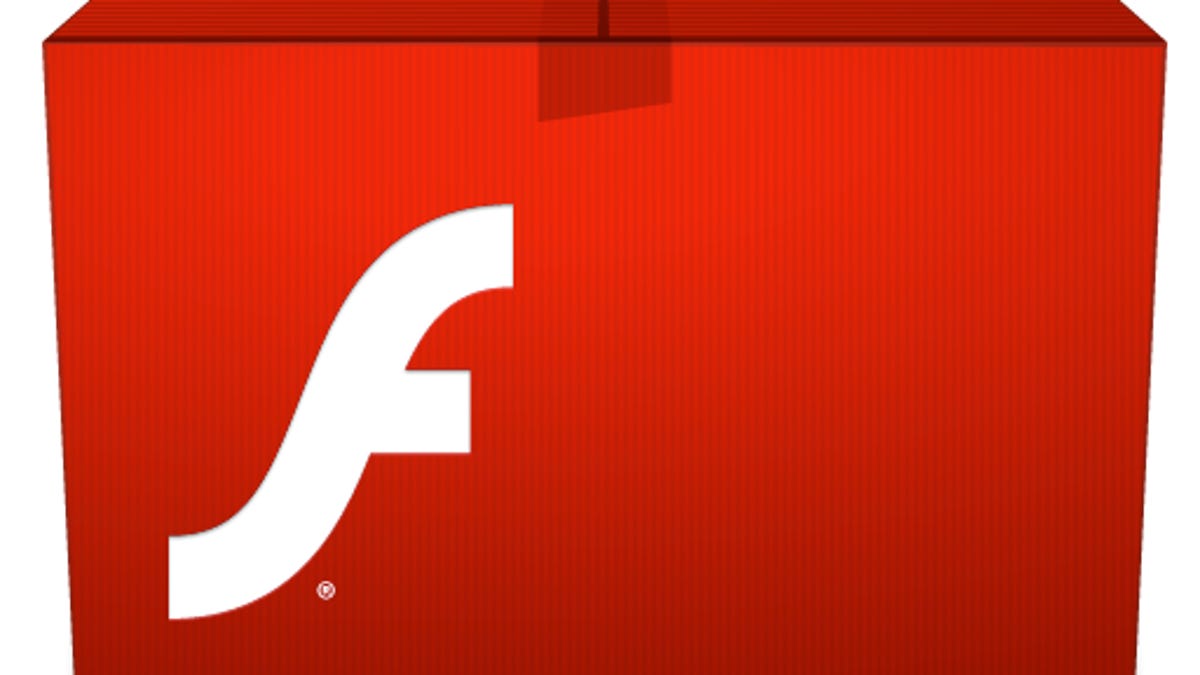Apple blocks outdated versions of Adobe Flash
Mac OS X users with the Flash plug-in installed in Safari will need to make sure they're running the latest version.

Apple won't let you run an older version of Flash in Safari.
Apple continues to clash with Flash.
On Tuesday, the iPhone maker said on a support page that it would once again start blocking outdated and potentially vulnerable versions of Adobe's Flash plug-in. Any Safari users with an older version of Flash will get a message saying it is out of date. They will also be prompted to download the latest version.
On June 14, Adobe issued a security advisory that warned people the then-current version of Flash "could cause a crash and potentially allow an attacker to take control of the affected system." By June 16, Adobe had resolved the latest problem by issuing a new version of Flash to address the flaws.
Apple did not respond to a request for comment.
Adobe Flash has long been a necessary, if ill-behaved, tool for web browsers. For years, the plug-in has been slammed for its constant security flaws and performance issues. Yet it's still used by many web developers to offer games and streaming media over the internet. Apple has banned Flash it from its iOS software, which powers the company's mobile devices. Fellow browser makers Microsoft, Google and Mozilla have also tried to limit or block its use.
Microsoft's Windows 10 Edge browser automatically pauses Flash content that isn't central to a web page. Google's Chrome browser will block Flash on almost all websites. Mozilla's Firefox blocks any old and potentially vulnerable version of Flash and offers a "click to play" option that forces you to manually turn on Flash should you need it.
Just why is Flash so vulnerable?
"Flash Player is one of the most ubiquitous and widely distributed pieces of software in the world, and as such, is a target of malicious hackers," an Adobe spokesman said. "Attack techniques that seemed unimaginable even two years ago, are very much reality today. While the key goal of the industry at large will always be to stay a step ahead of the attackers, vulnerabilities and exploits are unlikely to disappear completely as technology and attack techniques evolve."
Over the past few years, more developers have switched to HTML5 to create animations, videos and other types of interactive content. But Flash is still around and is likely to remain a fixture on the web for years, security headaches and all.
"It's important to note that Adobe is working closely with Google, Microsoft, Facebook and others in an industry-wide initiative to facilitate the transition to and adoption of Open Web standards, including HTML5," the spokesman said. "At the same time, given that Flash continues to be used in areas such as education, web gaming and premium video, the responsible thing for Adobe to do is to continue to support Flash with updates and fixes, as we help the industry transition."
You can upgrade to the latest edition of Flash, version 22.0.0.192, by downloading the plug-in from Adobe's Flash Player site.
Update, 1:26 p.m. PT: Adds comment from Adobe.

